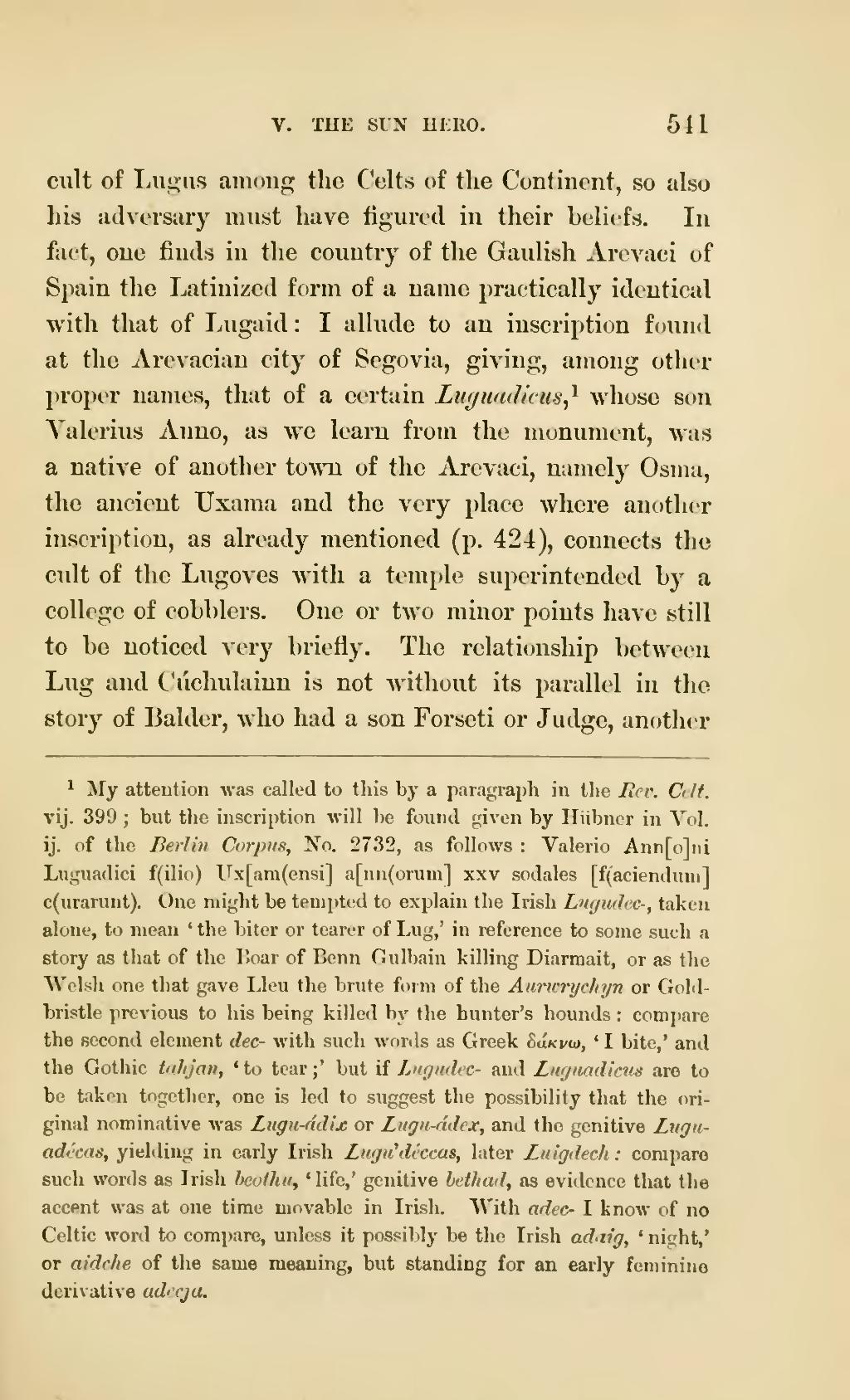cult of Lugus among the Celts of the Continent, so also his adversary must have figured in their beliefs. In fact, one finds in the country of the Gaulish Arevaci of Spain the Latinized form of a name practically identical with that of Lugaid: I allude to an inscription found at the Arevacian city of Segovia, giving, among other proper names, that of a certain Luguadicus,[1] whose son Valerius Anno, as we learn from the monument, was a native of another town of the Arevaci, namely Osma, the ancient Uxama and the very place where another inscription, as already mentioned (p. 424), connects the cult of the Lugoves with a temple superintended by a college of cobblers. One or two minor points have still to be noticed very briefly. The relationship between Lug and Cúchulainn is not without its parallel in the story of Balder, who had a son Forseti or Judge, another
- ↑ My attention was called to this by a paragraph in the Rev. Celt. vij. 399; but the inscription will be found given by Hübner in Vol. ij. of the Berlin Corpus, No. 2732, as follows: Valerio Ann[o]ni Luguadici f(ilio) Ux[am(ensi] a[nn(orum] xxv sodales [f(aciendum] c(urarunt). One might be tempted to explain the Irish Lugudec-, taken alone, to mean 'the biter or tearer of Lug,' in reference to some such a story as that of the Boar of Benn Gulbain killing Diarmait, or as the Welsh one that gave Lleu the brute form of the Aurwrychyn or Gold-bristle previous to his being killed by the hunter's hounds: compare the second element dec- with such words as Greek δάκνω, 'I bite,' and the Gothic tahjan, 'to tear;' but if Lugudec- and Luguadicus are to be taken together, one is led to suggest the possibility that the original nominative was Lugu-ádix or Lugu-ádex, and the genitive Lugu-adécas, yielding in early Irish Lugu'déccas, later Luigdech: compare such words as Irish beothu, 'life,' genitive bethad, as evidence that the accent was at one time movable in Irish. With adec- I know of no Celtic word to compare, unless it possibly be the Irish adaig, 'night,' or aidche of the same meaning, but standing for an early feminine derivative adecja.
